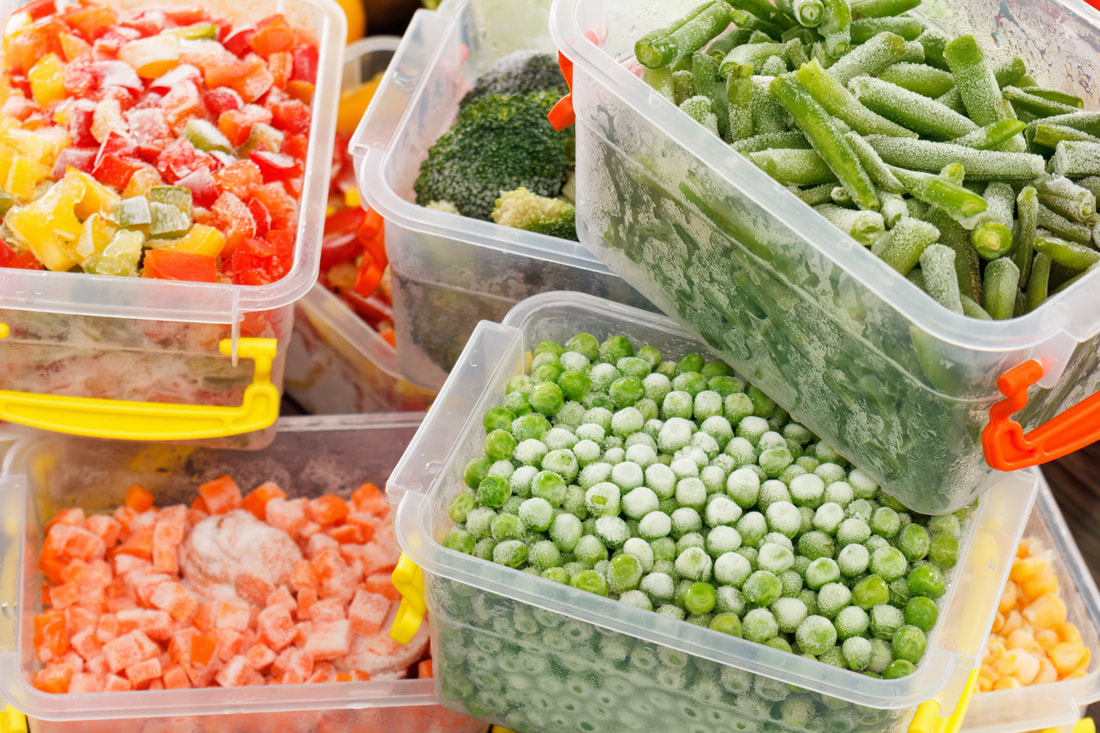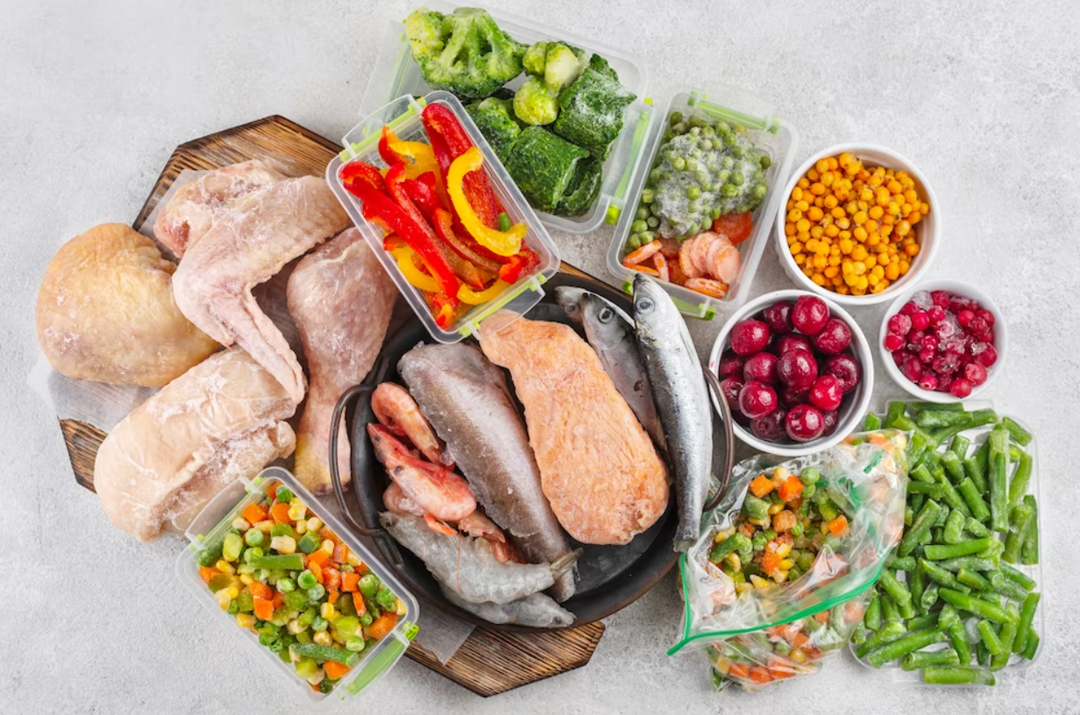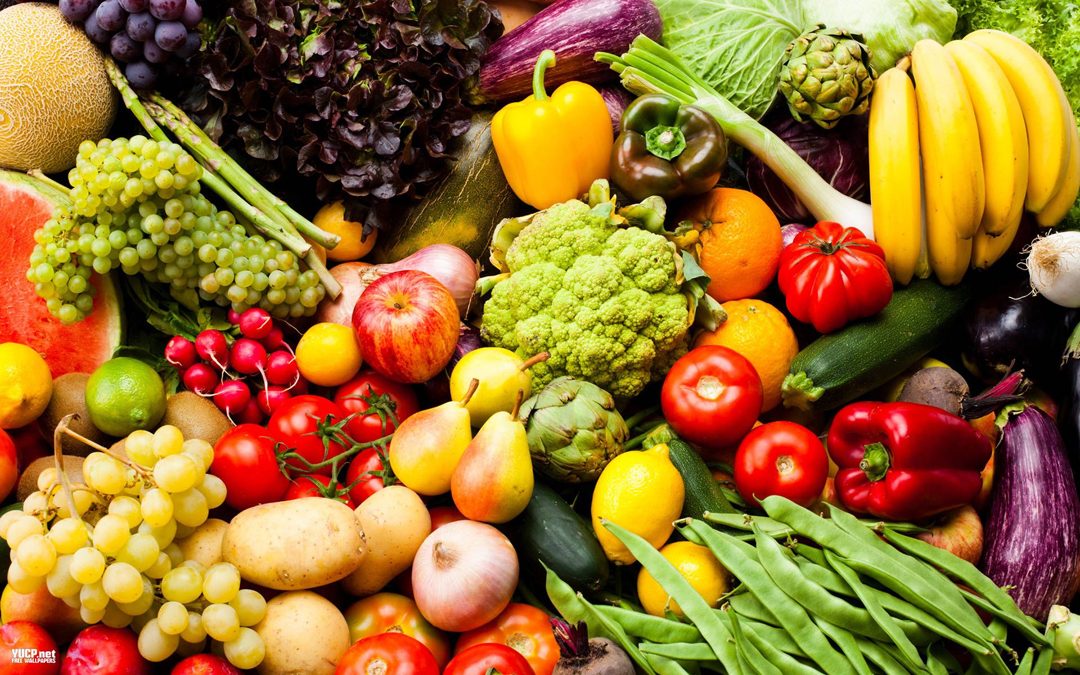There is often a debate around whether frozen foods are as nutritionally beneficial as fresh foods. Both fresh and frozen foods are harvested in similarly the same way.
Fresh Food
Fresh food is one that comes straight from the source. The term usually refers to any fruit, vegetable or meat product that isn’t overly processed or preserved, including salting, drying, smoking, dehydrating, canning, pickling or freezing to prevent spoiling.
The food is at its very best and hasn’t been sitting on a shelf for months or years at a time.
How “Fresh” is your food? Learn more
Fresh produce at a grocery store isn’t always at its nutritional peak. Think about it: Apples are in season from mid-September through mid-November, yet one can buy an apple any time of the year at the supermarket. Apples are typically picked when slightly unripe, sprayed with a chemical called 1-methylcyclopropene to slow down its ripening, waxed, boxed, and kept in a warehouse until ready to be shipped to a grocery store. In just a few days, the apple will start to lose its nutritional value even before being unpacked.
Picking produce before it fully ripens does have its disadvantages:
- When picked early, produce has less time to develop a full range of vitamins, minerals, and natural antioxidants.
- Fresh fruits and fresh vegetables start to lose moisture and experience a drop in nutrient value shortly after harvesting.
- Water-soluble vitamins start to decline immediately after harvesting. Vitamin C content continues to decline during transportation and storage.
- Green leafy vegetables are the most delicate and susceptible to nutrition loss as they have no outer shell or skin to protect them. For example, spinach loses about half of its folate by about eight days after being harvested. However, because spinach is full of vitamins and minerals, consuming it not directly after harvest still offers lots of great nutrients.
Identifying Frozen Foods
Frozen food is any food the processor has frozen and preserved, typically for sale in the frozen state. Processors freeze food to slow the decomposition of fresh food and prevent bacterial growth. This food can stay on shelves for months or years. Frozen food is convenient for many consumers with busy schedules or large families who may not always have time to prepare and cook fresh food.

Since freezing is a natural form of preservation, frozen foods might not contain additional preservatives. However, many contain added sugar, sodium, ascorbic acid, or additives like butylated hydroxyanisole (BHA) to prolong their shelf life.
Are Frozen Meals Healthy?
Contrary to what we might think, frozen fruits and veggies can be more nutritious, better quality, and cheaper. They also automatically have a longer shelf-life, too!
Frozen produce is often picked when ripe and frozen right away to prevent nutrient loss. Scientists back this up, too. In one study, researchers conducted 40 tests that measured nutrient levels in three-day-old produce versus their frozen equivalents. They discovered no differences in vitamin contents between nutrients in the fresh and frozen fruits and vegetables. Even more interesting, the amounts of vitamin A, vitamin C, and folate of some of these frozen fruits and veggies were higher than the fresh-stored produce.
While some frozen foods aren’t great for you, this is starting to become the exception, not the rule.

With increasing awareness, more and more brands are listening to the demand for healthier foods and are creating meals with shorter ingredient lists, less added sugar, and more veggies.
In order to identify a healthy frozen meal from an unhealthy one, check the nutrition label. Read the number of calories, sodium, saturated fat, and sugar per serving. Experts recommend frozen meals contain less than 600 mg of sodium, a maximum of 25 grams of fat, and total calories around 400.
While the nutritional content of fresh and frozen produce is relatively similar, frozen produce may have a slight advantage as it offers an added level of convenience.
Disclaimer
The Content is not intended to be a substitute for professional medical advice, diagnosis, or treatment. Always seek the advice of your physician or other qualified health provider with any questions you may have regarding a medical condition.
Publisher: Source link







